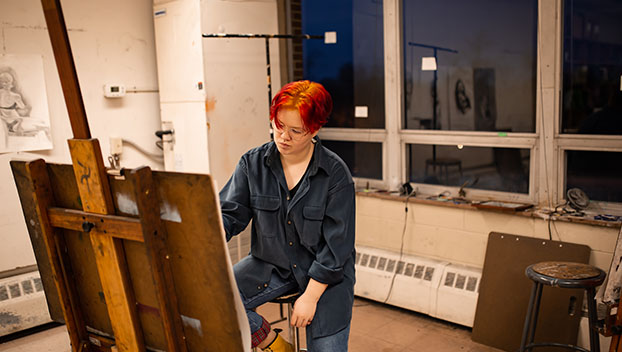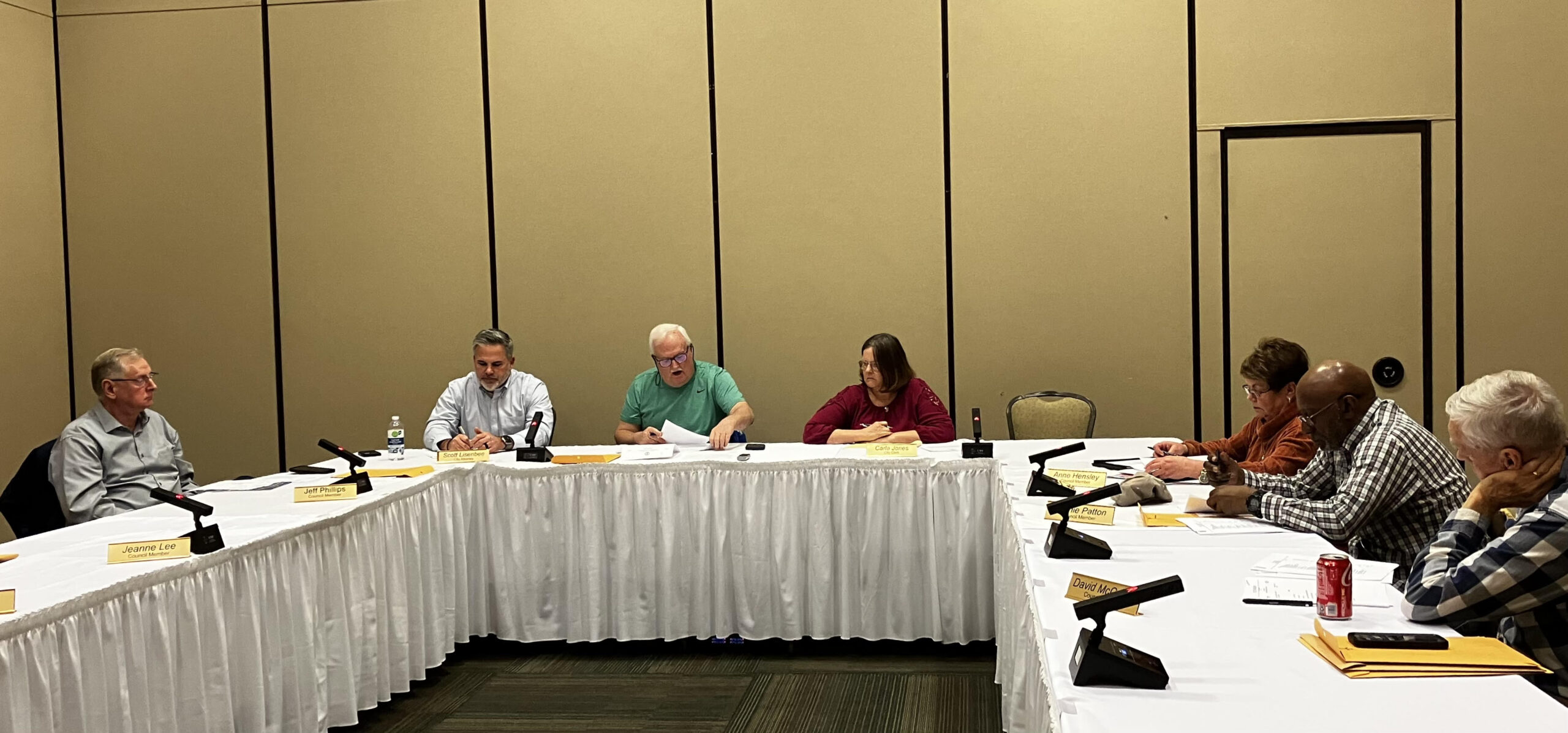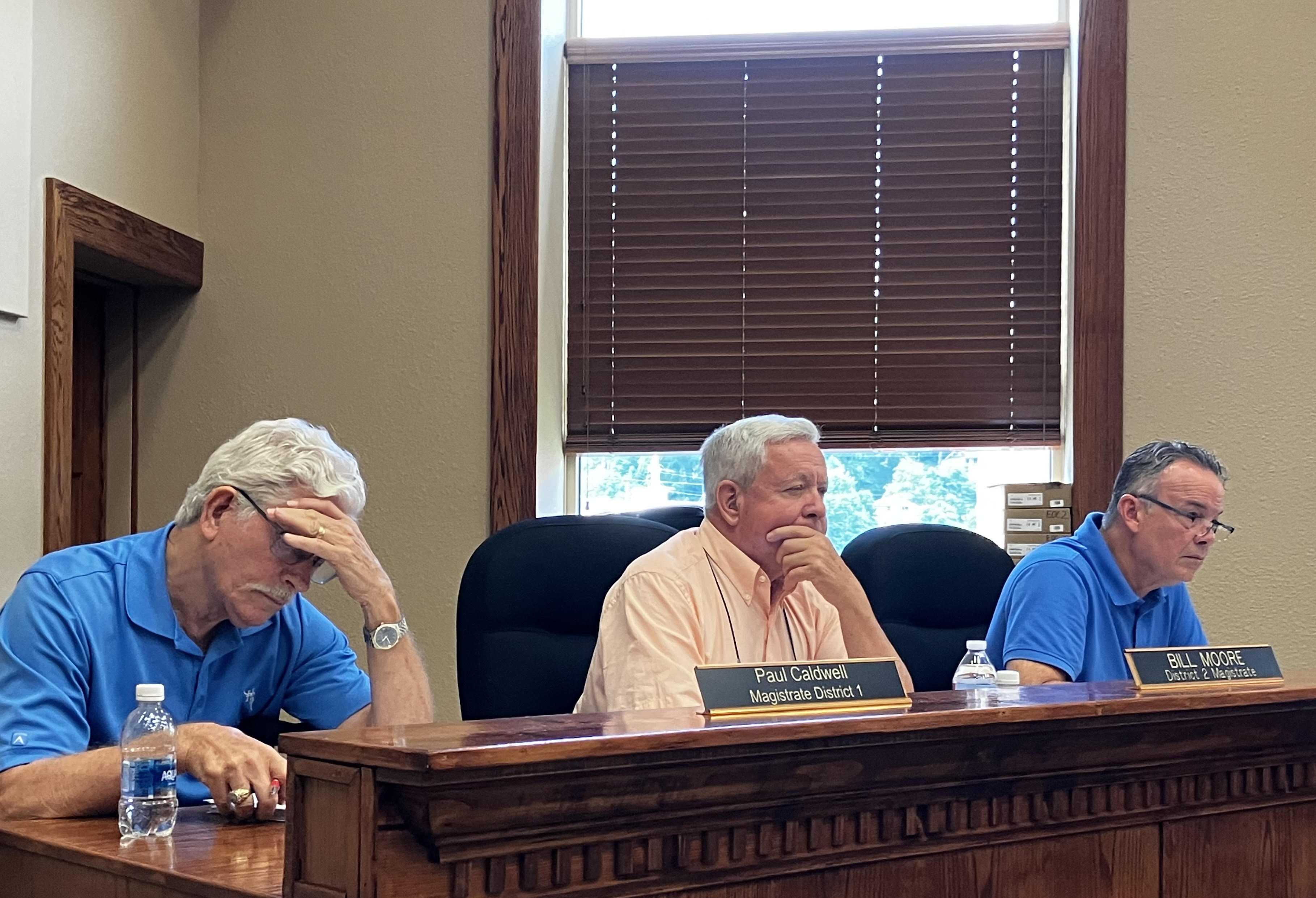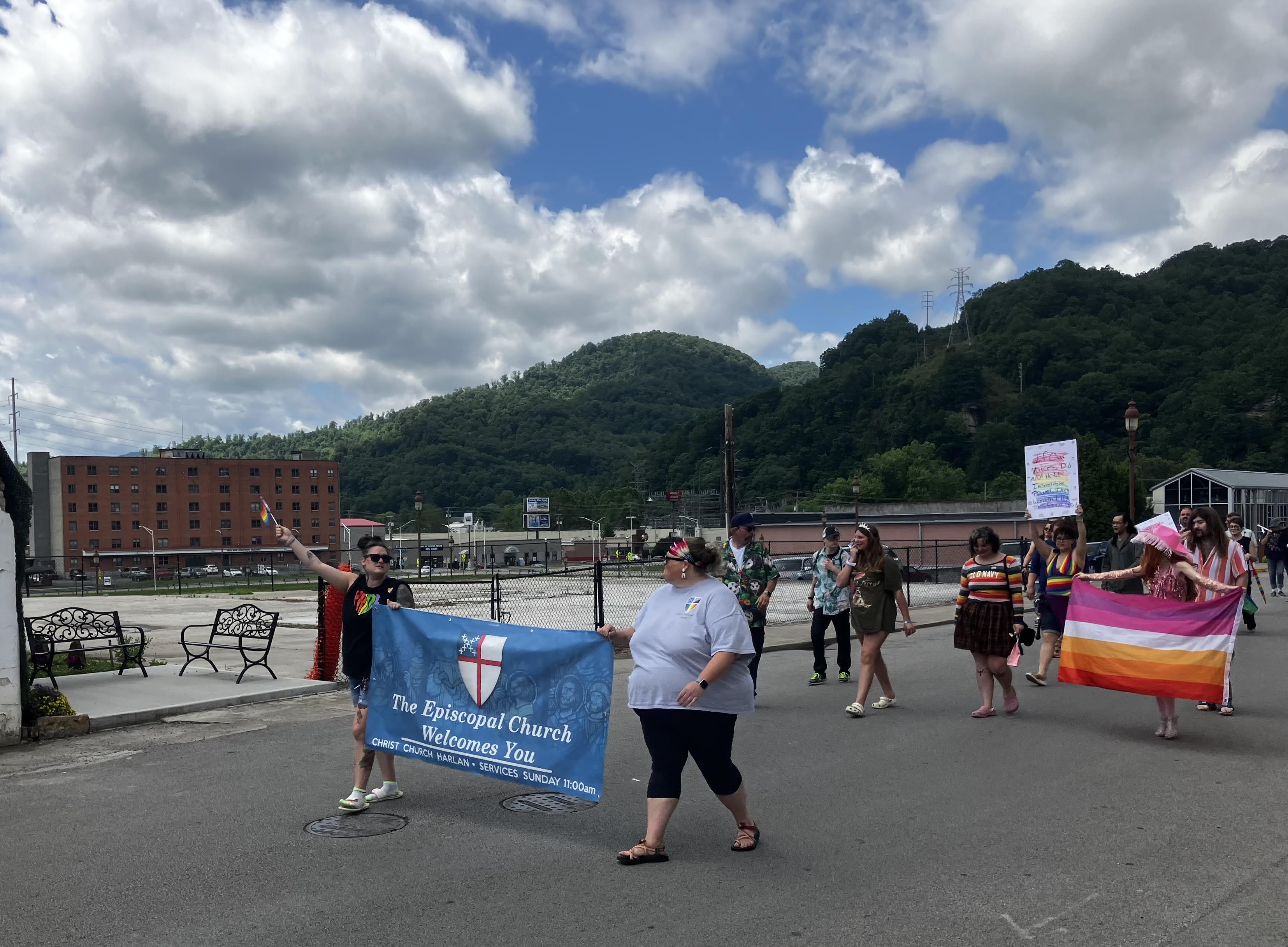Not all sunshine and rainbows’
Published 11:30 am Wednesday, June 7, 2023

- Art has helped Grace find his voice in uncertain times for LGBTQ individuals around the United States. (Photo by Kaitlyn McCracken/Asbury Collegian)
|
Getting your Trinity Audio player ready...
|
By Gillian Stawisynski
Jessamine Journal
Last October, around two dozen Asbury University students participated in a protest on their campus.
As of this spring, Dani Grace is now an Asbury graduate. He majored in worship arts and had a double minor in music and art.
As a senior, he organized this protest at Asbury; without him, there wouldn’t have been a protest.
The protest at Asbury was part of a much larger movement.
Students at private religious colleges all over the country held walk-outs protesting their colleges’ policies and alleged mistreatment of LGBTQ students.
Two groups partnered up to organize this national day of protest: the Black Menaces and the Religious Exemption Accountability Project (REAP).
The Black Menaces is an activist group created at Brigham Young University. Their mission is to fight “to empower marginalized communities.” Today, the group has chapters all over the county.
The Religious Exemption Accountability Project is an advocacy group representing LGBTQ students and alums who said they’ve experienced discrimination at religious colleges.
Grace was on TikTok when they saw a video about the upcoming national protest.
“Hey!” the TikTok played, “Is your religious university represented in this protest?” Grace looked through, and Asbury wasn’t listed.
He had never even participated in a protest, much less organized one himself. But he said he couldn’t just sit back and not do anything.
Because he had been out as transgender and gay at Asbury for a few months, and most of his friends were not publicly out, Grace knew that the best course of action was to organize the protest.
“When I feel like something is the right thing to do, safety is not always at the top of the list,” Grace said. “It’s not very common amongst my friends to feel the same way. So, I just put their safety above mine.”
And they continued to represent their fellow queer students to protect their identities, even when Asbury’s student newspaper, The Asbury Collegian, reported on the protest.
Kaitlyn McCracken, the co-editor of opinions at the Collegian, solely cited Grace as the protest’s spokesperson in her news article on the event.
‘Not quite fire and brimstone’
Grace was born in Tennessee to two Russian immigrant parents. His dad was studying in Tennessee at the time, but shortly after Grace was born, his family moved back to Russia until he was 12 years old, when they moved back to the States to Lexington.
His parents were born in the USSR, where religion was discouraged. But when his parents began working as translators for missionaries in Russia in their early 20s, they came to the Christian faith.
Grace was raised Pentecostal, spending plenty of his childhood in the church. He said it was “not quite fire and brimstone” but “pretty darn close.”
“When you’re 12 or 13 years old, and you’re constantly being taught or told that if you don’t do XYZ, you’re going be damned forever, that you’re gonna burn forever, that you’re going to suffer forever- That has a lot more impact than its given credit. And, of course, that often goes with homophobia,” Grace said.
Asbury’s previous president is a friend of Grace’s parents. Dr. Sandra Gray would bring Asbury t-shirts to Grace as a child. It ended up being the only school he had applied to; It was Christian, and he could get a lot of scholarship funding. At the time, Asbury was all he wanted in a school.
Art and music are a great love for Grace.
His artistry and queerness have always been connected.
“Along with me coming to terms with my queerness is when I really started to accept the fact that, you know, I can be an artist,” Grace said.
It wasn’t until college that Grace learned more about his sexual orientation and gender identity. He said that before, he didn’t have the space or language to discover the fluidity of their identity. His friends helped him through that, and two years ago, he came out to them.
“My friends and roommates have just been there for me through the entire process. They’ve been very patient, very kind, and very loving. In many ways, they have shown me what God’s love ought to be, which is unconditional. So, I think if it weren’t for them, I wouldn’t be here. In many ways, they empower me to take the sometimes crazy and unusual paths like leading and organizing a protest and working on my senior exhibit,” Grace said.
Grace said he came out to his parents four to six months ago.
He said they refuse to accept and honor his identity, his pronouns, or his new name- which is only a few letters off from their birth-given name.
They said they’re lucky because he hasn’t been kicked out, but his parents have “chosen God, and loving God, over loving their child,” Grace said. “I think my parents will soon understand that if they don’t choose me, they’re gonna lose me.”
“These are the things bigots don’t see. They don’t realize that being queer is not all sunshine and rainbows. It’s not popular. It’s not a choice. If it was, I don’t think any sane person would choose this,” Grace said. “They would not choose the amount of heartbreak and the amount of confusion. Not about necessarily who you are but the confusion as to why people treat you like a complete alien when just one thing is shared. It baffles me. It baffles me.”
A look into the queer experience at Asbury University
One anonymous quote that McCracken included in her article reads as follows: “’I am a Christian, and I am gay,” said another student. “And your loveless theology cannot take that away.’”
And theology is fundamental in the way Asbury is governed. It’s specifically apparent in the school’s “Community Commitments: Morality” section of the community handbook.
“Discernment in these moral issues is important in our development as individual believers, and violations in this category often result in greater disciplinary consequences,” reads the morality section.
“Sinful” behaviors like hatred and jealousy and practices like theft and the worship of idols are stated as “prohibited” at Asbury.
Although, there are only a couple of actions under the morality section that Asbury specifically states as “almost certain to result in separation from the University for a period of time.” These actions are abortion, and sexual immorality, which includes “adultery, same-sex behavior and premarital sexual intimacy.”
The university has an entire statement on human sexuality, explaining the institution’s stance on the issue. This statement boils down to the biblical belief cited in Matthew 19:8 that marriage is between a man and a woman and that one’s gender is what is assigned at birth.
“As sinful, fallen creatures, we are all tempted to sin; however, we do not claim those areas of temptation as right and good – and worthy of embrace and celebration. Rather, we unashamedly insist that by the Grace of God, we are called to live within the biblical boundaries of our sexuality.”
Grace said they were surprised by the number of people that showed up to protest.
He said, “I can’t say that I was fully expecting great big movements or change in any of the laws or regulations,” but that he knows a lot of people felt heard and honored.
Asbury has a student wellness group called Journey that was launched around 2019 with the help of Associate Dean of Wholeness and Wellness Kevin Bellew. He is also the group’s official faculty leader. Grace is one of the leaders of the student-led group that aims to be a private, safe space for queer students.
Students learn about the group through word of mouth, and Grace emphasized that this is not a conversion therapy group.
A lot of talking happens in this group. Grace said it is a way for queer students to support each other and “share the pain of being queer and not being accepted by your family members and your loved ones and help cope and deal with the fear that comes with being queer in a religious university.”
The students talk a lot about how painful it is to exist and comfort each other through the fear of their very existence.
“I have lost count of how many times we’ve had to support people through suicidal thoughts. And I can’t even tell you the number of times I’ve seen and helped people through a panic attack,” Grace said.
Grace said the group members help each other survive, “The amount of feeling that comes with feeling unsafe, I don’t think a lot of people know about it until they live through it or have seen other people live through it.”
But the group also celebrates victories in the struggle.
“When a student comes out to their parents, and they’re not kicking them out, and they’re not physically or mentally or emotionally abusing them, we celebrate that. When somebody honors our identity and our pronouns and our chosen name, we celebrate that,” Grace said.
Despite the morality laws, Grace said their friends have started to feel a cultural shift at Asbury among students and faculty alike.
“They’ve said that and I agree from my observations, the campus is starting to be a little bit more affirming and supportive in terms of the student body. And a little bit of the faculty, too. Of course, when it comes to the faculty, they are not as free to do a lot of things.”
When asked to comment for this story, Asbury University officials referred the Journal to its website for its stances on the issues discussed in this article.





